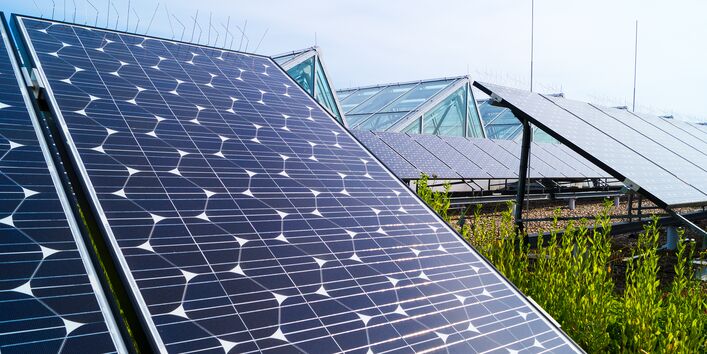Renewables cover 17.1 percent of gross final energy consumption in Germany in 2019
Renewable energies accounted for 17.1 percent of gross final energy consumption in 2019. This is compared to a share of 16.5 percent in the previous year. This puts the target of 18 percent which Germany must achieve by 2020 under the EU Renewable Energy Directive within sight. These are conclusions based on current data from the German Environment Agency (UBA). However, trends diverged from sector to sector: in the case of electricity, the share of renewables rose to a record 42.1 percent (2018: 37.8%). Heating sector share grew slightly, while the transport sector stagnated. UBA's President Dirk Messner said: "Tackling climate change will only work if we use more energy from sun, wind and water. The Energiewende in Germany has been driven primarily by the electricity sector. Unfortunately, the heating sector, like the transport sector, is not yet on the right track. The heating sector is particularly important because it accounts for roughly 50 percent of gross final energy consumption. Since construction and refurbishment work takes time, the legal provisions for a successful 'heat turnaround' must be created quickly - for example in the forthcoming Buildings Energy Act."
In the heating sector, the share of renewable energies rose only slightly from 14.3 to 14.5 percent. In the transport sector, renewable energies remain at 5.6 percent. Although somewhat more renewable energy was produced, total energy consumption increased. Transport is responsible for nearly one quarter of total energy consumption. There is little progress in either sector. Previous years already reflected a slight increase only in the renewables share.
The share of electricity generated from renewable sources rose to a record 42.1 percent in 2019 (2018: 37.8%). At the same time, the expansion of renewable generation capacities is declining overall. Onshore wind power in particular is suffering as a result of prevailing conditions: the net newly installed onshore capacity dropped from 4.9 GW in record year 2017, and 2.3 GW in 2018, to just 0.9 GW in 2019. Since 2000, 2008 was the only other year in which installed wind onshore power was lower. Gains in the installation of new photovoltaic systems cannot fully compensate for this decrease. Dirk Messner said: "There is no way around it; we need to return to more wind power installation if we want to replace phased out coal-generated electricity with a climate-friendly alternative. By the way, I disapprove of standard spacing for wind turbines. Resistance to wind power at local level is better addressed on an equal footing and in dialogue with residents." UBA believes the annual gross development corridor for the period until 2030 should increase to at least 4 GW per year. An expansion of at least 5.5 GW per year would be necessary to meet the goals of the Paris Agreement.
In 2009, Germany set itself the goal within the framework of the European Renewable Energy Directive of increasing the share of renewable energies in gross final energy consumption to 18 percent by 2020. By 2030, the share of renewables in gross final energy consumption is to further increase to 30 percent. However, this target will not be reached if the trend of the past ten years continues through 2030. Since 2009, the share of renewable energies in gross final energy consumption has only increased by around 6 percentage points (from 10.9% to 17.1%) despite the strong growth in the electricity sector. That share must therefore still increase by more than 12 percentage points by 2030.
Further information
The Working Group on Renewable Energy Statistics (AGEE-Stat) works on behalf of the Federal Ministry of Economics and Energy to take stock of renewable energy use. Based on the data available, the Working Group has drawn up a background paper on renewable energy development in Germany [Erneuerbare Energien in Deutschland – Daten zur Entwicklung im Jahr 2019]. The Working Group will update the statistics as robust data becomes available in the course of the year.

